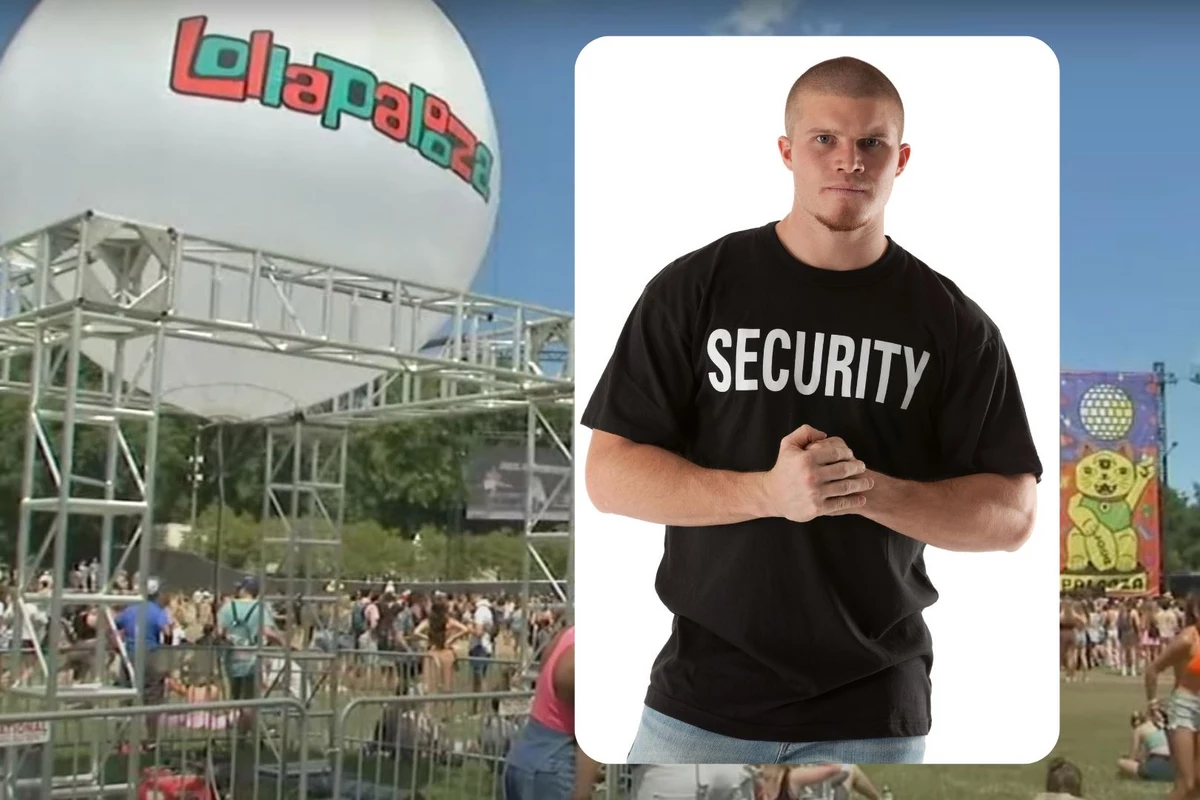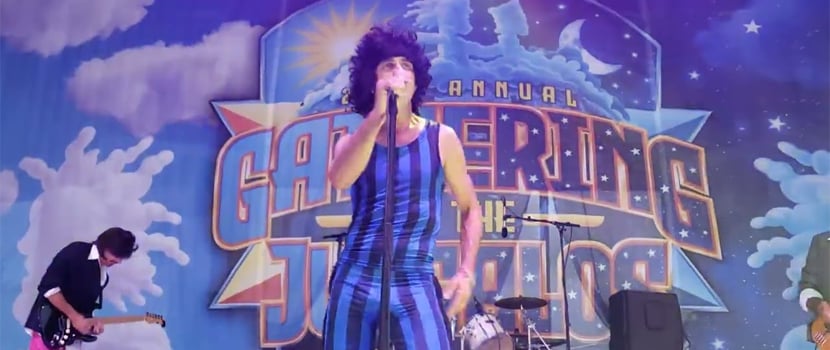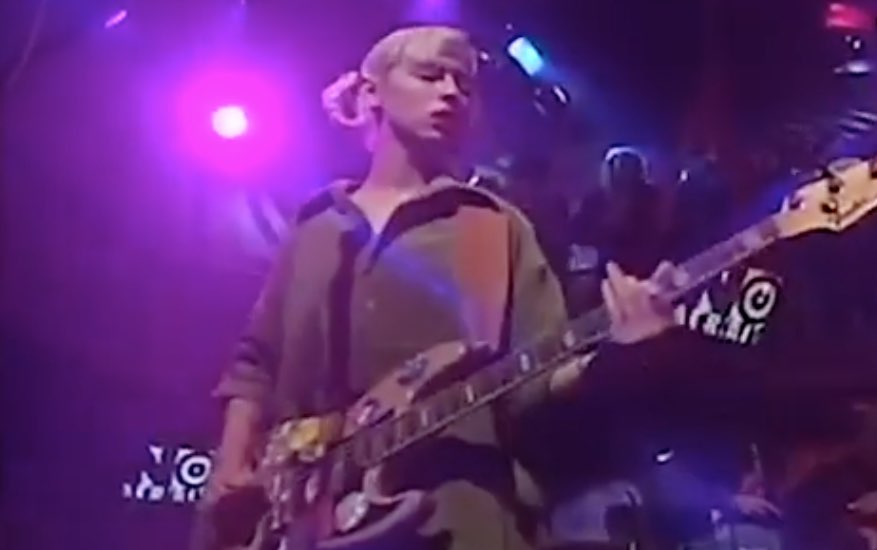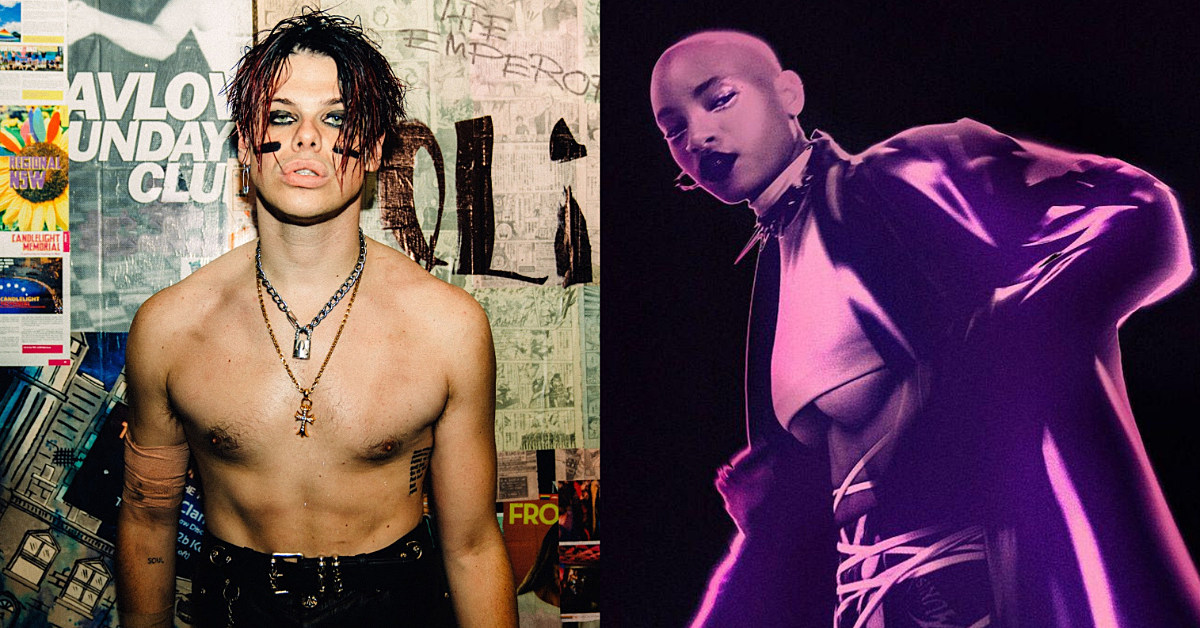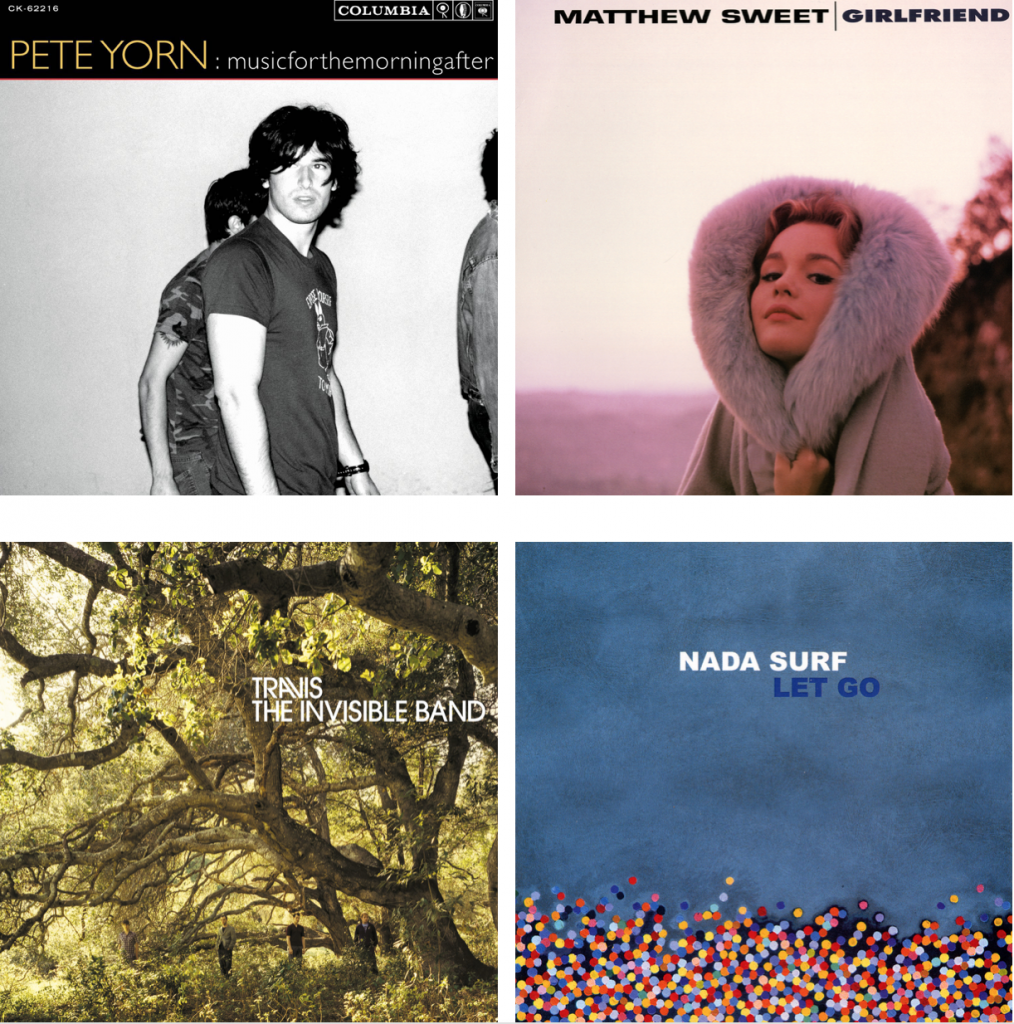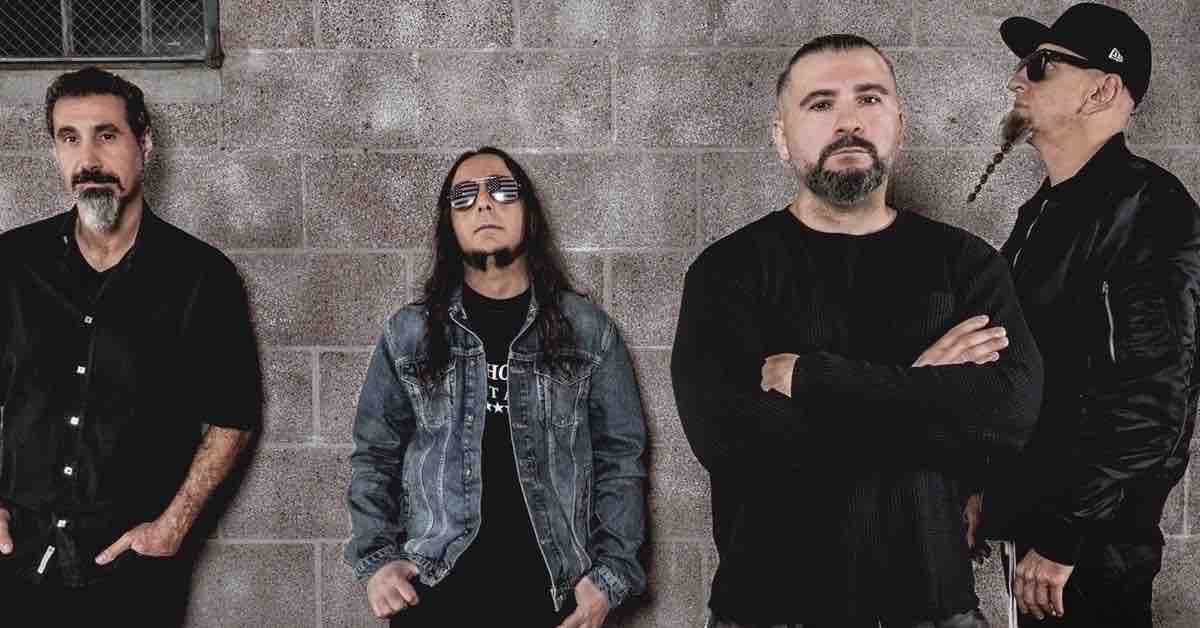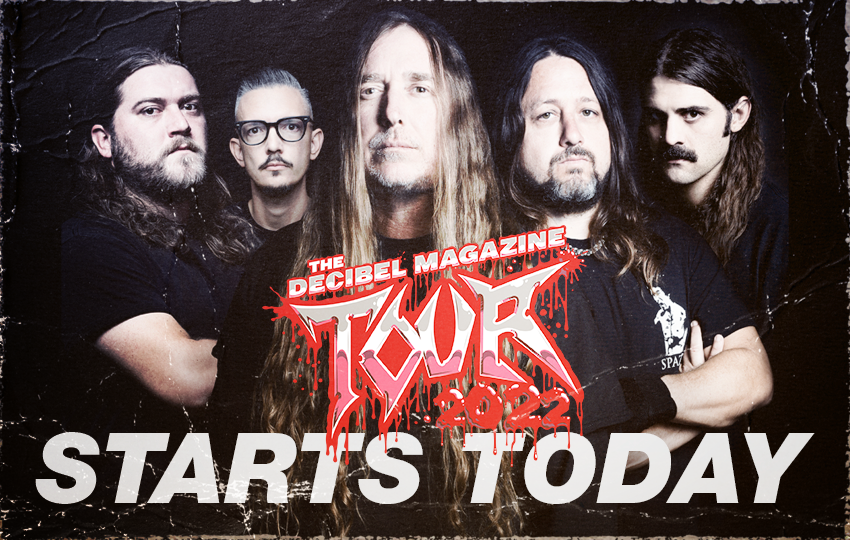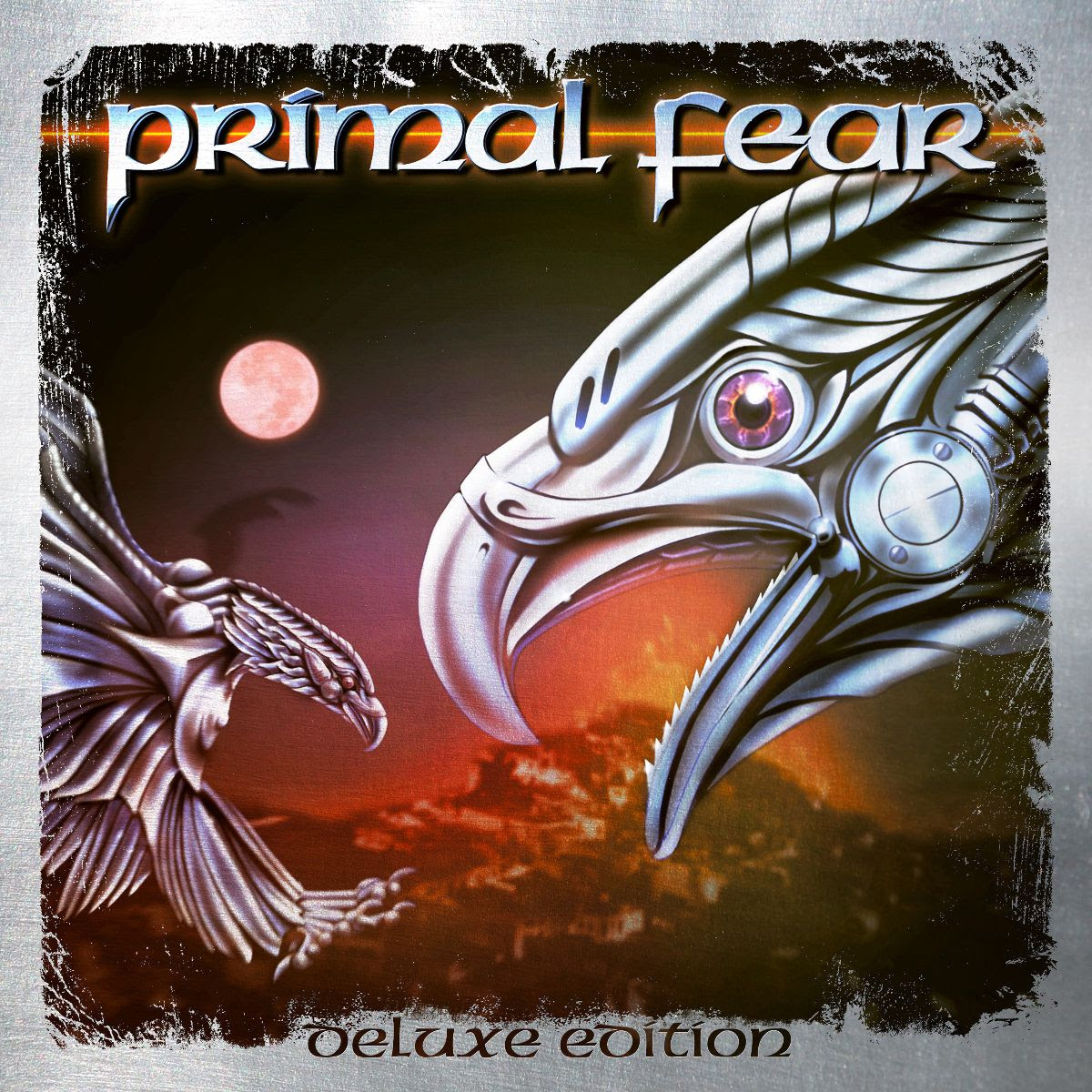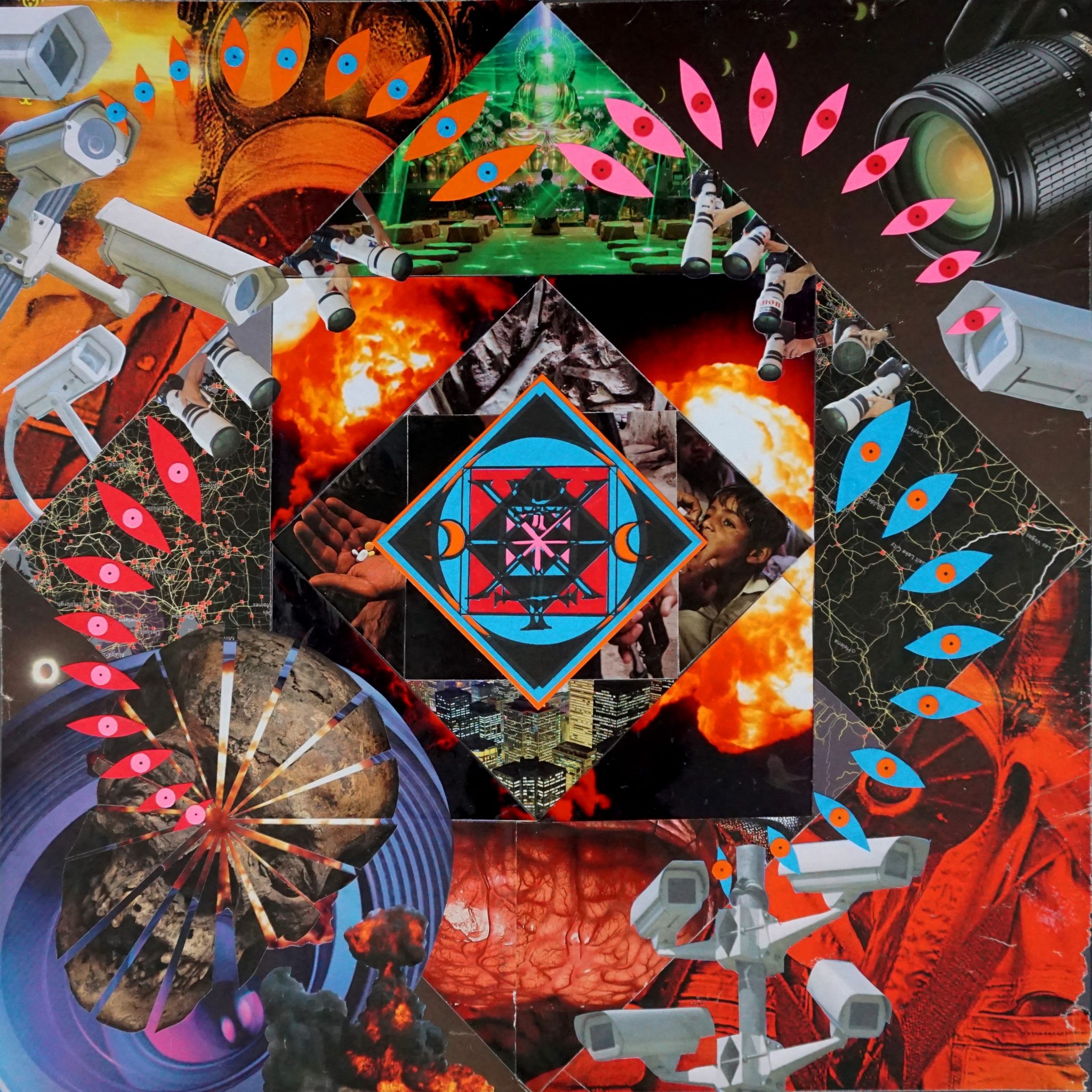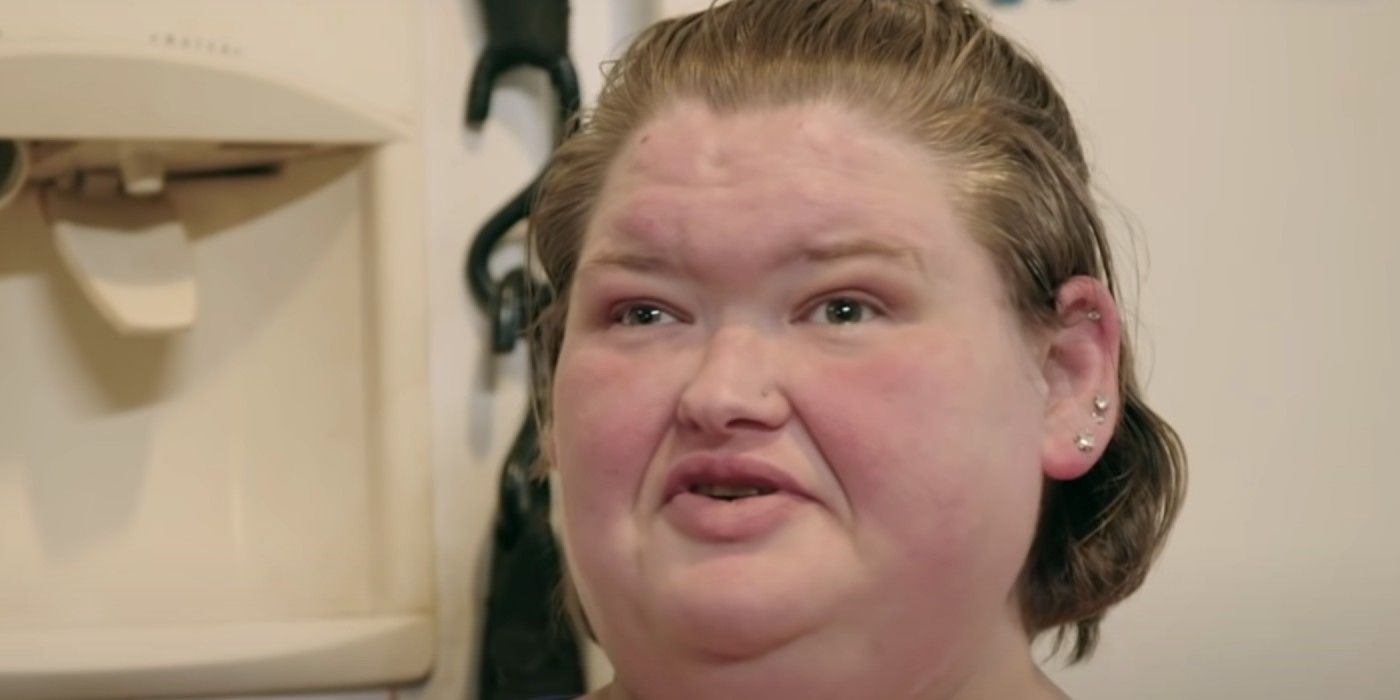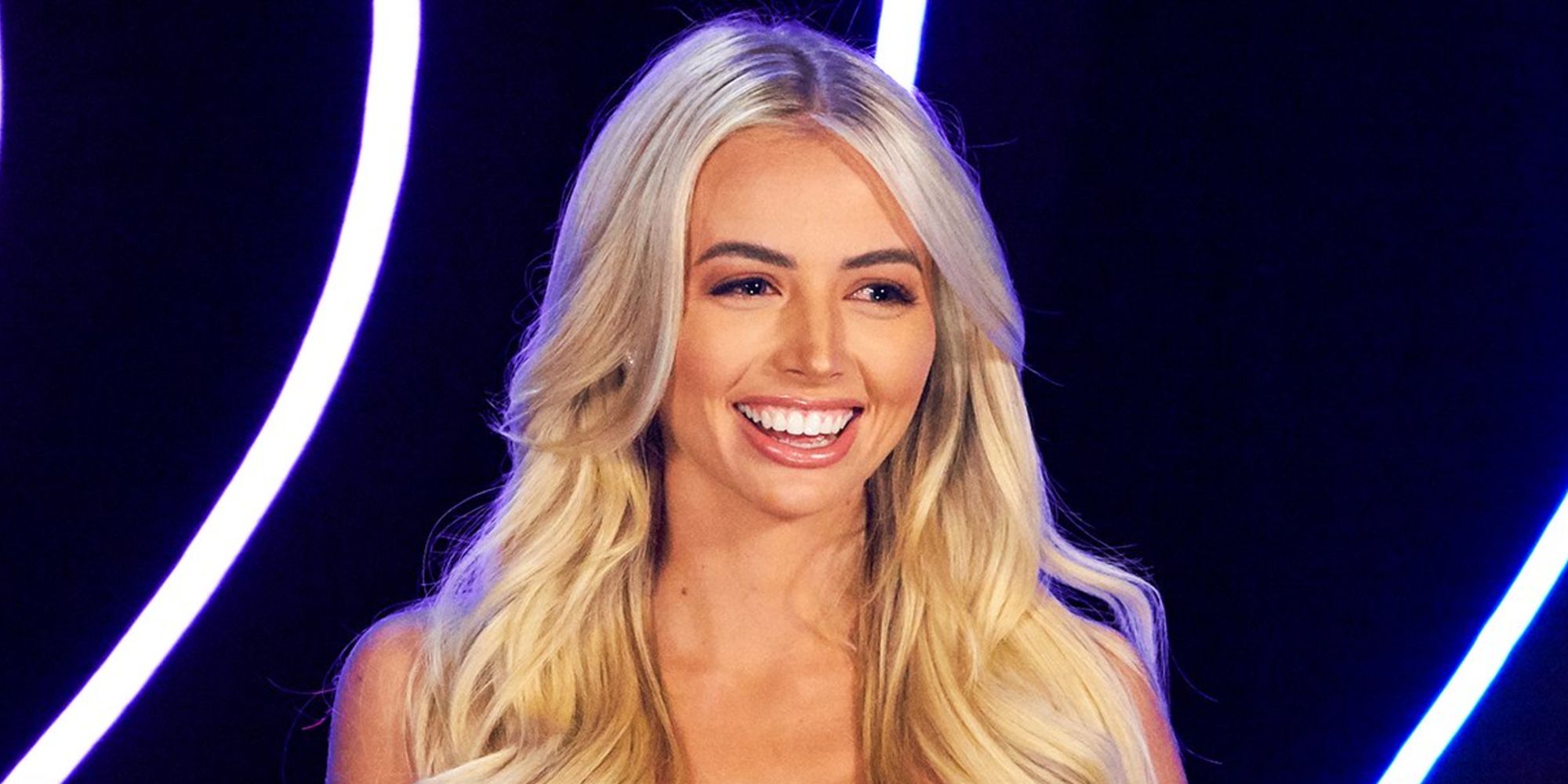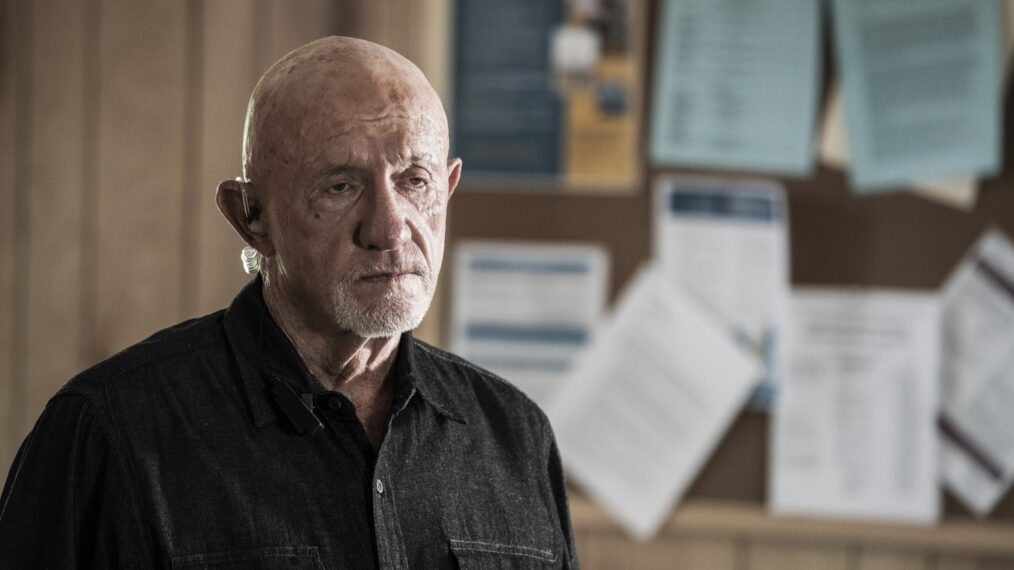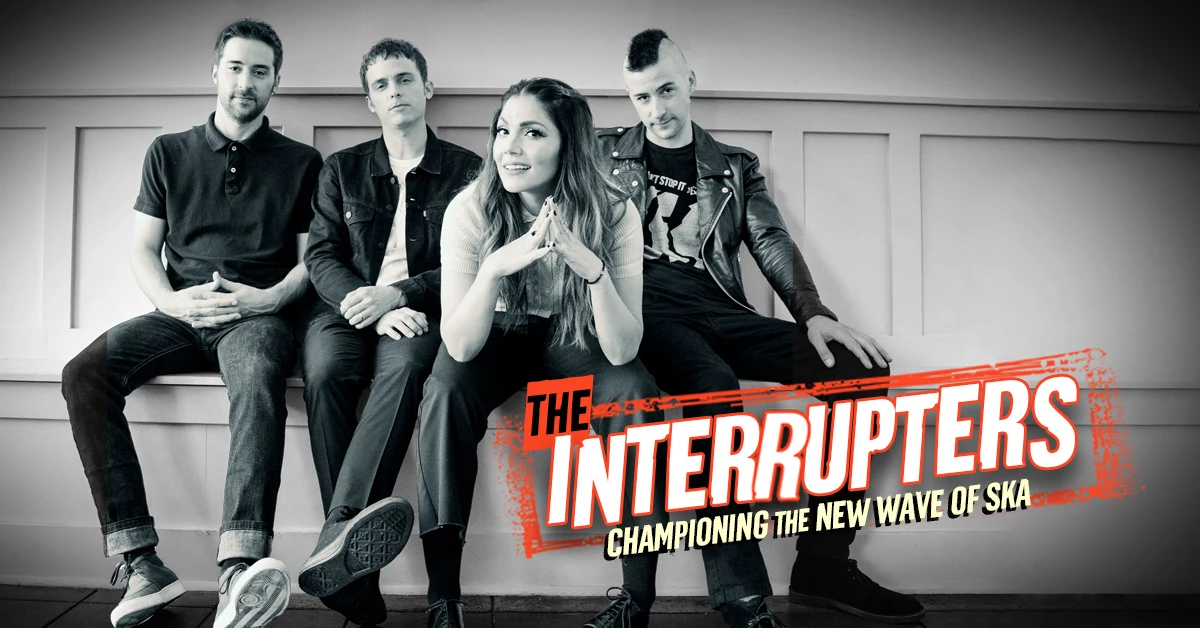
Above the rooftop at Pier 17 on Manhattan’s southern tip, the sun is slowly setting, likely because the Interrupters’ kinetic set is pulling it closer to Earth. At least, that’s how it feels — how could anyone, or any perfect ball of hot plasma, the source of all life in our solar system, not be curious?
Atop a stage that towers above a pirate ship (seriously) and the Brooklyn Bridge, ska-punk’s saviors blasted through a 15-track set including a cover of Bad Religion’s “Sorrow,” and a medley featuring California classics the Offspring’s “Come Out and Play,” and Rancid’s “Ruby Soho.” It’s June 30, 2022. They were co-headlining with Flogging Molly, and the spilled beer and green T-shirts in the crowd were a testament to their tourmates — but they might as well have been at their own arena. Near the front, a little boy, no older than 7, was hoisted atop his dad’s shoulders, decked out in a tight black mohawk, suspenders and temporary tattoos. A couple of feet to the right of him, a dad and daughter wore matching Interrupters shirts.
In another corner, a surfer with skin leathered from the sunshine showed another child, likely 12 or 13 years old, how to skank. People of all genders, ages, races, ethnicities, sexualities and presumably economic backgrounds rejoiced in the family band’s ebullient, curse-word-free punk. (In their history, they’ve only dropped an f-bomb once onstage, while introducing a dad of the band, and they’ve never done it again. Even if the Social Distortion crowd that evening loved it.) If the Interrupters are not the most optimistic band in the genre, I’d love to hear who else takes the title.
It’s rare to think of punk as a wholesome activity, one where the rallying cries against injustice and hatred are delivered free of profanity, but then again, the Interrupters have always been a little left of center. It’s why their band name is so — and let’s hope the band forgive me for this — damn fitting.
A week after the sunset show, the Interrupters are back home in Los Angeles, at “our compound, in an undisclosed location in Los Angeles where we all live together, and have our recording studio,” guitarist Kevin Bivona delivers a mouthful about the setting, clearly the orator of the bunch. (See this band live once and you’ll immediately get it. Or internalize this detail: He was a magician in childhood, a musician and performer all his life. The only tricks he pulls these days are riffs.) But the compound — it’s not a “compound-compound,” per se. No cultist rituals performed are here; it’s no military installation or grouping of SoCal mini McMansions.
“It’s a multi-family residence, two houses, one garage, a backyard, one driveway,” drummer Jesse Bivona jumps in with the accuracy of an HGTV host. “Kevin and Aimee live up front, [bassist] Justin and I live in the back.” Jesse and Justin cook, Aimee and Kevin will come over for homemade pasta and meatballs. The band’s “Family” music video was shot in the backyard, while their “Take Back the Power” and “Get Down Moses” videos were shot in the practice room they converted into a studio over the pandemic. Photo shoots have been organized on the roof. (Not this one — it seemed like high time they got out of there.) If a superfan wanted to embark on an Interrupters walking tour, it sounds a lot like they’d have just one destination. And that’s because the band are a family — a relationship Jesse describes as “not like the Gallaghers, closer to the Hanson brothers” — and that kind of comradery is impossible to fabricate.
attachment-TheInterrupters_Individual_Allan_09
[Photo by Ryan Allan]
Most bands with a backstory as dynamic as the Interrupters would push it to the forefront of everything they do — you can’t buy history, or blood — and the fact that they don’t make them all the more obsession-worthy. The mythology goes down like this: In 2009, frontwoman Aimee Interrupter (then going by Aimee Allen, a pop-folk-acoustic-reggae soloist discovered by American Idol’s Randy Jackson with some Linda Perry co-writes under her belt) met the three brothers who would become her future bandmates while on tour. The Bivonas — guitarist Kevin and twin brothers drummer Jesse and bassist Justin — were on the road supporting Dirty Heads and Sugar Ray with their band, the Telacasters (not to be mistaken with Travis Barker’s punk-rap outfit the Transplants, though Kevin is also in that group.) Kevin and Aimee immediately clicked — they traded CDs and made a pact to write together.
“Every single time I’ve met another artist who I really love, and we’ve said, ‘We should write songs together,’ it never really happens. But we stayed in touch,” he says. “In one week [in summer 2010], we wrote ‘Easy on You’ [and] ‘Gave You Everything.’ We started ‘In the Mirror.’ We had the same sensibilities, musically, of what we wanted to do.”
Those sensibilities — a deep love and understanding of the songwriting craft, as well as nerdy obsessions with all things reggae, ska and California punk rock, kick-started an undeniable connection: She wanted him to produce her solo record, they started working together, she realized she wanted the solo project to be a full band, Jesse and Justin got on board. (How could they not? Since childhood the Bivona family has treated music-making as something that happens in the home — even their grandfather was a musician and toured with big bands in the 1930s and 1940s, like “Bunny Berigan, the Dorsey Brothers, he played in Glenn Miller’s band,” Justin explains. “He became the first chair [alto clarinet] in the MGM studio orchestra, composing music for Tom and Jerry, The Grinch, West Side Story. He played on Frank Sinatra records and collaborated with Ella Fitzgerald.”) Rancid’s Tim Armstrong got on board, too — Kevin was engineering for him at the time, and Armstrong had co-written a song for Aimee’s record called “Playing with Fire” that ended up becoming the bridge for the Interrupters’ biggest hit to date, “She’s Kerosene,” years later. But more on that to come.
And so, in 2011, the Interrupters were born.
attachment-TheInterrupters_Individual_Allan_14
[Photo by Ryan Allan]
Well, sort of. The twins were still playing with Sugar Ray, and both Aimee and Kevin were occupied with other music endeavors. The foursome had to turn down lucrative opportunities to pursue this new project that just felt so right, even though it meant “sleeping on floors, sharing one hotel room, driving for 12 hours, sleeping at the venue,” Kevin says. “[The band] became this thing I always wanted: an all for one, one for all, we’re in this [together mentality].”
The band signed to Tim Armstrong’s Epitaph Records imprint Hellcat and released their self-titled debut LP in 2014. (It pays to have the ska-punk progenitor produce most of your albums and stand up your band as its most loyal supporter!) “The sound of the Interrupters on the first record was just the sound of Jesse’s drums, Justin’s bass, my guitar and Aimee’s voice. There’s no bells and whistles,” Kevin explains. Aimee finishes the thought, “It was recorded in seven days, and live, pretty much. No edits. No vocal edits, even. It was just punk.”
It wasn’t just a band, either. Kevin and Aimee’s collaborative relationship became romantic in 2010. “It was definitely love at first sight for me,” Kevin explains. “She is truly my other half, and she makes my world complete.” Aimee jumps in, “Same. Love at first sight. He is my best friend and love of my life. The sweetest, kindest, funniest person I know. There isn’t a day that goes by that he doesn’t make me laugh. I feel like I get a free stand-up comedy show every day of my life. And what is love without laughter?”
attachment-TheInterrupters_Group_Allan_06
[Photo by Ryan Allan]
In 2013, they were married. And so the Interrupters all share a last name, like the Ramones, except they’re actually related, unlike the Ramones. What’s more punk than that?
You could say what followed was a whirlwind of nuptials and success, but the reality is, the Interrupters went to work — and hard — to the point where they began recording each live performance on multiple GoPros so Justin, the band’s archivist, could review each moment like a football coach planning his next play. Was a song performed too fast? Could they cut the banter? Did they lose the audience in the midst of the medley? The only way out is through, and each record, like 2016’s Say It Out Loud and 2018’s Fight the Good Fight, brought along its own challenges and triumphs.
“Kevin came up with an analogy the other day that I think is perfect. Our first record is like a first date. It’s just fun. You don’t tell them all your baggage. No, you’re just like, ‘We’re here to have a good time. Did you want to dance? Let’s get some good food, hang out, keep it light.’ The second record is like a second date. Give them a little more. The third record is a little more intimate,��� Aimee explains. Intimate like a fox — it marked the band’s first time breaking the Billboard 200 and produced “She’s Kerosene,” one of alternative radio’s first ska hits in a minute. And, as it has been well-documented, it was the first time a ska band featuring a woman vocalist has accomplished such a feat since No Doubt. Now, with their fourth album, In The Wild, the stakes are even higher.
attachment-408-INTERRUPTERS-PQ-1
Aimee continues to metaphor. “But that fourth date, that’s a full-blown relationship. We’re moving in. In The Wild is where we feel safe enough to be vulnerable and open up about deeply personal things.”
That may very well be the understatement of the century. Written over the pandemic in their home studio and mixed by the brilliant Zakk Cervini (blink-182, Machine Gun Kelly, Bring Me The Horizon), In The Wild is Aimee’s audio memoir — a deeply personal meditation on her traumatic past. Ask what inspired the introspection, laid bare on record, and she’ll quote a song to you: “It’s like the lyric in ‘In the Mirror,’ ‘I’m tired of running.’ I was tired of running from myself. I did TMS [transcranial magnetic stimulation] treatment for my depression. I did EMDR [eye movement desensitization and reprocessing] treatment for my PTSD during the pandemic. I was facing my pain, really, truly for the first time in my life, looking at all my resentments and trauma and closing each chapter one by one, finding forgiveness and healing.”
attachment-408-INTERRUPTERS-PQ-2
Through that arduous process, she realized she was finally able to write about her experience. “There was a lifetime of hesitancy, and I grew weary of being afraid. And I’d be dead without music. So, when I die, if anyone is like, ‘I wonder who Aimee was?’, they can put on this record and find out,” she explains, her eyes darting from Kevin, to me, to the ground.
Her irresolution is understandable. On In The Wild, there are songs about abuse. There are quite a lot of them, actually. There are songs about escapism, about severe anxiety, insomnia, depression, PTSD, trichotillomania and panic attacks. There are songs about grief. But there are also songs about unburdening, giving yourself permission to not be OK and accept love.
attachment-TheInterrupters_Individual_Allan_12
[Photo by Ryan Allan]
And they are the best songs the Interrupters have ever written. Because beyond even the incredible candor is an ambitious musicality. In The Wild is a genre-adverse record that spans doo-wop balladry (“My Heart,” an ode to Aimee and Kevin’s late dog Daisy), reggae with a spicy vibraslap straight out of Ozzy Osbourne’s “Crazy Train” (“Kiss the Ground”), sweaty California pub-punk — complete with handclaps and palm-muted power chords (“Anything Was Better”) and, of course, full-throttle ska (“The Hard Way”). The album is also stacked with features: Armstrong, Bodysnatchers legend Rhoda Dakar, the Skints, Alex Désert and Greg Lee of Hepcat. “It’s the record I’ve been waiting for,” Jesse sits up. “We’ve scratched at the surface — now we’re laying it all out there.”
Throughout In The Wild, there’s a lot of language surrounding appearance, and making yourself ugly (“I bite my nails until they bleed” and “Pullin’ out my hair from the root like a weed,” Aimee sings on “Jailbird,” “I wanted it perfect, no wrinkles,” on “In the Mirror.”) The ultimate bodily dismissal arrives on the piano- and cello-heavy closer “Alien,” the Interrupters’ first song without any guitar, a cinematic coda that acts as both a dirge and catharsis, opening with: “My bones are the bars of a jail/And I’ve never felt completely female.”
In childhood, Aimee started pulling out her hair; her eyelashes and eyebrows, specifically. “I felt like an alien. I looked different than everyone. I didn’t understand why I was doing it. I had so much shame and guilt about it. I felt so ugly. My eyes were constantly swollen and red. I tried to cover my lack of hair with markers, Elmer’s glue and giant fake eyelashes,” she explains.
attachment-TheInterrupters_Individual_Allan_15
[Photo by Ryan Allan]
She was bullied both at home and at school. When she tried to stop, the shame built up, and the pulling grew worse. She hid her face, hated having her picture taken, and avoided mirrors entirely. “I had a Catholic upbringing and was told by some adults that this behavior was ‘evil.’ I wouldn’t learn the word trichotillomania, and that it’s a mental health condition that other people had, until I was in middle school,” she says.
“Around the exact same time I was pulling out my hair, my stepdad, on top of being verbally and physically abusive, was sexually abusing me. His cruelty felt never ending. For years, he would come into my bedroom when I was sleeping, which I believe has led to lifelong insomnia, where I have always felt the need to be super hyper-vigilant at night,” she continues. “Anxiety consumed me. Suicidal ideation consumed me. Around that time, against my will, he also cut off all my long hair and made it very short. I wanted out of my body, out of my skin. I hated my body. I disassociated. I started to identify as a spirit. Not female, not connected to my body, just a spirit. [That] is why I empathize and relate so deeply with people who have gender dysphoria.”
attachment-408-INTERRUPTERS-PQ-3
When Aimee was 8 years old, she collected her allowance money and rode her bike downtown — the college town of Missoula, Montana where she grew up — and purchased her first cassette tape: Joan Jett & the Blackhearts’ I Love Rock ‘n’ Roll album. It changed her life. “It was the first time I ever felt not alone in the world. I put it on, and I was like, ‘Oh, my gosh, there’s somebody out there that feels like I do. There’s somebody out there that gets me.’” she says. “My stepdad would take my tape away as punishment because I loved it so much.” Luckily she had learned all of the lyrics and melodies, so as an act of rebellion, she could sing Joan Jett songs all the time by herself, a cappella in her room. “Music was always my way to fight back, to take back my power and to not feel so helpless,” she nods.
attachment-TheInterrupters_Individual_Allan_10
[Photo by Ryan Allan]
There was a lot to feel helpless about: Her dad left when she was 2 months old, and for those first eight years of her life, it was just her mom, two sisters, brother and baby Aimee. “We had many financial challenges, and my mom struggled to keep us fed and housed during those years,” she says. But there were some pleasures: Her mom is Sicilian and learned to play the accordion at a young age. Without TVs, the family’s entertainment was sitting around and listening to her play, singing in step.
Then her mom met and married her stepdad. It wasn’t long until she also became a victim of his coercive control. “We all walked on eggshells every minute of every day. We all became trapped in the silent dark world of domestic abuse,” Aimee recalls. When she was 11, 12 years old, her school noticed heavy bruising on her, and called child protective services. She was sent to a foster home for a while before her biological father picked her up, and she went to live with him and her stepmom in Billings, Montana for a few years. “[That was my] first time really getting to know them,” she says. “They weren’t present in my life in my younger years.”
That, too, proved to be less than ideal. “Billings is a drinking town. My dad would always go to the karaoke bars and bring me with him. Every week, sometimes multiple days a week, for countless hours, I would be in these loud, smoky dive bars. [And I would sing]. It was overwhelming for an 8th grader, but I learned a lot,” she explains. “When I was singing, my dad, being a football coach, would shout at me like he would one of his players. Saying things like ‘Louder! They can’t hear you in the back! Sing it like you mean it!’ I had to sing hard to be heard. Singing my heart out became an escape and therapy for me at the time. Whatever I was feeling, I could always find a song that expressed it. I loved finding songs with pain. I basically grew up singing in bars.”
She’s careful not to romanticize those words — for some, it may sound like the beginning of some great rock ’n’ roll folklore. In reality, it disciplined Aimee into the all-star singer and performer she is today (like her hero Jett, she developed this otherworldly rasp, an androgynous voice that dwarfs others in comparison. And talking about her hero often brings Aimee to tears — it’s doing so right now). It also taught her resilience — a necessary evil and skill in equal parts, why should it be left up to oppressed groups to grow tough skin in the face of adversity? — especially for a woman in a predominantly male field. Men can be mediocre and experience success; women have to work much harder.
attachment-408-INTERRUPTERS-PQ-4
“In all my years as a singer and songwriter, I have noticed deep-rooted sexism in how people see women in music. I don’t usually see male singers deal with the same type of scrutiny on such a constant basis. Maybe people that label and box women in, and dismissively compare them to one another, have a limited musical catalog in their brain,” she says. “It feels dehumanizing when someone writes me off as ‘some chick trying to sound like this other chick’ as if I don’t have my own story to tell. I am just me.” And there’s an inherent greatness in that.
There’s an elephant in this profile, in this room, in this music community, that we’ve been purposefully skirting past this whole time: ska, punk’s most contentious and jovial subgenre, a three-letter word treated like a four-letter one. (And remember, this band doesn’t curse.) It’s a genre that has been stigmatized as goofy, uncool, and by its worst detractors, a commercialization of working-class Jamaican music performed by white dudes in boiler hats and checkerboard Vans. And that’s not a completely unfair assessment of the worst ska bands — the Interrupters buck that stereotype by embracing the genre’s history and diversity. They use that knowledge to write contemporary classics, which is why it’s not uncommon to hear someone say the Interrupters are the only ska band they like. Hate to break it to you: But if you like this band, you like ska. And a lot of other different genres. So many different genres, in fact, it’s ultimately genreless music.
attachment-408-INTERRUPTERS-PQ-5
“Everything we make is rock ’n’ roll,” Aimee starts. “And ska has the richest history. If you look back at the earliest ska in Jamaica, it’s American rhythm and blues records that got mixed with mento music, the regional beat. It’s all rooted in three chords and the truth,” Kevin jumps in. “Ska is only a dirty word to people who don’t know the history.” That, or they’ve simply listened to a lot of mediocre ska before. “The worst of any genre is the worst. There’s no genre where you’re like, ‘It’s all good.’ Some of the best ska bands are the best bands [in general],” he continues. “Like the Specials. They’re gonna go down in history forever. Madness. All the 2 Tone bands. Operation Ivy — every day there’s a kid who discovers the Op Ivy record and is like, ‘This is changing my life.’ The beautiful thing about making music in 2022 [is] the barriers aren’t really there anymore, like they were when I was coming into music as a young person. You were a metalhead or skater or a punk or ska kid.” Now you can be whatever the hell you want.
attachment-TheInterrupters_Group_Allan_07
[Photo by Ryan Allan]
“Do you know what Elton John said about us?” Aimee cuts in. “He played us on his Apple radio show twice,” Jesse adds. “Kevin knows the quote.” “He said: ‘That’s the Interrupters. They’re a ska-punk band, but I don’t care what you call them. They make good music, and they make up music, and I love that track,’” Kevin recites. It’s an appropriate description in a lot of ways: The upstrokes on the downbeat that defines a ska riff, sure, but mostly, this band’s unbridled enthusiasm and appreciation for all that they have achieved. “Up vibes!” Aimee laughs.
It also speaks to the Interrupters’ ultimate musical identity, what they call “unity music.” Ska, it should be said, is one of the few genres of American popular music to celebrate its Black origins, instead of erasing that history. “The DNA of this music is unity. Look at 2 Tone. It’s strong women, it’s multicultural. Bands like Bodysnatchers,” Kevin starts, explaining that the Interrupters don’t see themselves so much as a political band as a humanist one. “We have social commentary in our songs, political commentary. We’ve stood up onstage and said, ‘We stand against racism, sexism, homophobia, transphobia, bigotry, all that.’ But I don’t think that’s political. That’s human. Because if there’s anything we’ve learned at this point, it’s that the politicians aren’t going to solve the problems. It’s people.”
“And if you’re turned off by that, we’re good on you.” Aimee adds, “If that speech upsets you — byeeeeeeee!”
attachment-TheInterrupters_Group_Allan_05
[Photo by Ryan Allan]
A few days before the New York City sunset show, the Interrupters played D.C. with Flogging Molly on the same tour. In the front row, a teenage kid waved a Hellcat Records shirt over the banister. “I was like, ‘Oh, I remember that kid because we played D.C. one time in 2015, and as we were leaving the venue, this kid was waiting for us. He saw Aimee, said, ‘I really like your shirt,’ and she took it off and gave it to him,” Kevin laughs. “He’s 17 now. I stopped the show, like, ‘Why are you holding that?’ And he was like, ‘It doesn’t fit me anymore!’”
“The whole show I was thinking, ‘Hey, I used to have a shirt just like that,’” Aimee laughs. The band are full of anecdotes like this, eager to describe their relationship with their fans and the community they’ve built. Like the moment in This Is My Family!, the Interrupters’ 2021 documentary, where it’s mentioned that the band’s lyrics prevented a young woman from taking her own life — someone tossed a note onstage at the final show of their 2020 U.K. tour to share such an intimate detail — a rare, scary, fruitful, loving take on “this band saved my life.”
“Music has saved me and healed me in the same way. I wouldn’t be alive without it. There is no greater gift than to receive a note like that,” Aimee reacts. “I am so grateful if, in any way, our music or lyrics can help someone out of a dark place and let them know they are not alone… That is success to us.” One listen to In The Wild, and they will know they are not.


